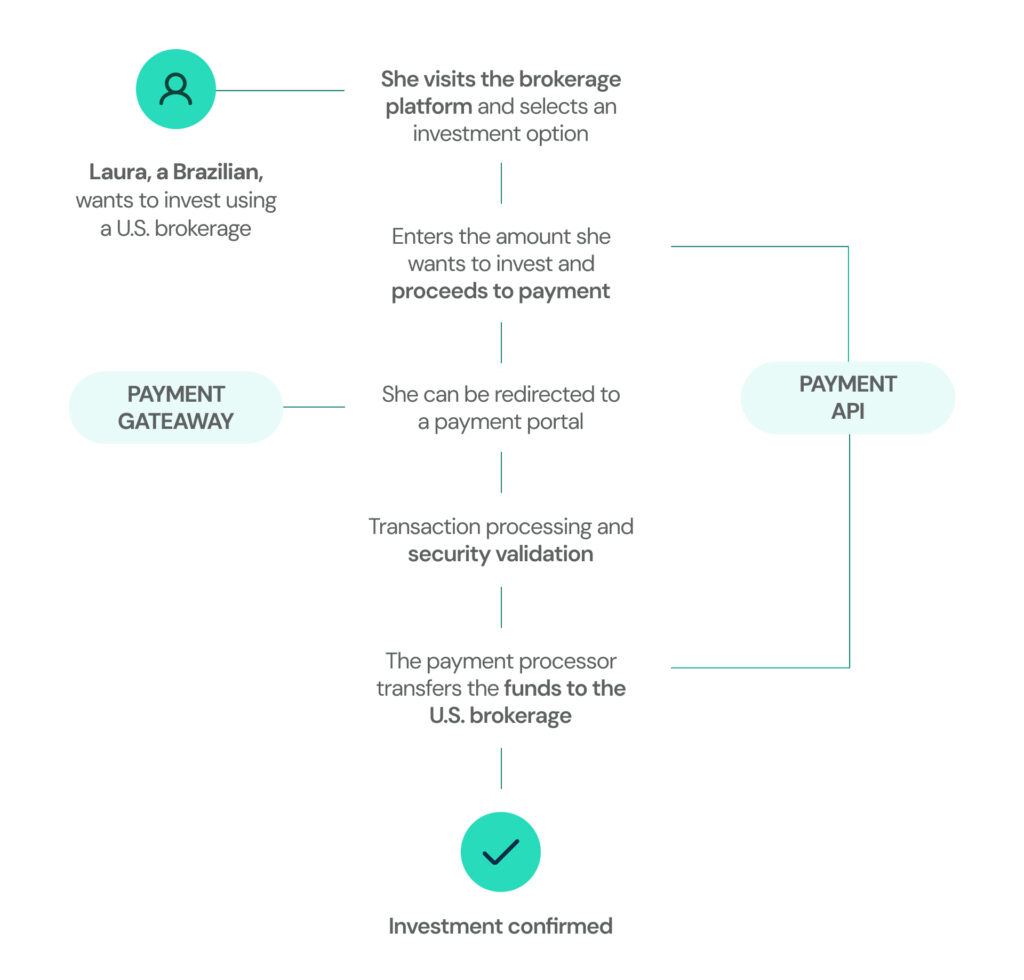Imagine your company is expanding beyond borders, attracting international customers eager to purchase your products or services. However, a major challenge arises: payments. Consumers expect to pay with their local methods, in their own currency, without excessive fees or complex processes. Without the right payment gateway and infrastructure, conversion rates drop, and global expansion becomes a logistical nightmare.
This is where a comprehensive payment solution comes in.
The global digital payments market is growing at an unprecedented pace. According to Mordor Intelligence, it was valued at $16.27 billion in 2024 and is projected to reach $34.8 billion by 2029, expanding at a CAGR of 16.43%. But how do you choose the right payment gateway or API-driven payment integrations for international expansion? Let’s explore this in detail.
What is a payment gateway and the difference to a payment API
A payment gateway is a technology that enables businesses to process online transactions securely and efficiently. It acts as an intermediary, facilitating communication between the customer’s chosen payment method and the company’s financial system. However, while a gateway is an essential component, it is only one part of a larger payment infrastructure.
A payment API, on the other hand, provides a broader and more flexible solution. Unlike a traditional gateway, payment API allows businesses to integrate multiple payment methods, streamline reconciliation, and automate financial operations with greater efficiency.
Key benefits:
For businesses navigating the complexities of digital transactions, leveraging the right payment gateway or API integration offers several advantages, some of them are:
- Seamless payment processing: Both ensure smooth and secure transactions, reducing friction and improving user experience.
- Advanced security and regulatory compliance: These solutions use encryption, tokenization, and AI-driven fraud detection to protect transactions and ensure compliance with regulations like GDPR, LGPD, and PCI-DSS.
- Support for local payment methods: Credit cards, instant payments like Pix in Brazil, SPEI in Mexico, ACH in the U.S., and e-wallets such as PayPal and Apple Pay;
- Optimized transaction approval rates: By routing payments through the best-performing channels, they transaction failures and improves conversion rates;
Businesses that do not use an optimized payment infrastructure for international markets often face high operational costs, low conversion rates, and regulatory issues. Choosing the wrong provider can result in lost sales and frustrated customers.

Understanding payment gateways: key factors to consider
If your company is just starting out or managing a simpler local setup, choosing the right payment gateway requires careful evaluation of essential criteria. Here are the most important factors to consider:
- Geographic coverage and multi-currency compatibility:
- Not all gateways operate in every market. Some have strong coverage in the U.S. and Europe, but limited presence in Latin America or Asia. Ensure it supports the countries and currencies where your business plans to expand. For example: If you want to expand to Brazil, you need a gateway that supports Pix, Boleto Bancário, and local credit cards.
- Support for regional payment methods:
- In emerging markets, offering locally preferred payment methods is crucial for higher conversion rates, as consumers tend to choose familiar options. For example: In China, WeChat Pay and Alipay dominate, while in Europe, SEPA facilitates local bank transfers
- Transaction fees and operational costs:
- Each gateway has different pricing models. Before choosing one, analyze how its costs align with your business model. Consider the transaction fees (% per processed payment), currency conversion fees, chargeback fees (forced refunds by banks), monthly fees or volume-based pricing.
- Security and regulatory compliance:
- Regulations vary by country, and a reliable gateway must comply with local and global financial laws, such as: GDPR (Europe), LGPD (Brazil), PCI-DSS (Payment Card Industry Data Security Standard). Additionally, it should include integrated fraud prevention tools like 3D Secure authentication and machine learning-based fraud detection.
- Easy integration and scalability:
- The gateway should seamlessly connect to your website, app, or ERP (Enterprise Resource Planning) without complex implementation. It also needs to scale with your business as transaction volumes grow;
- 24/7 technical support and customer experience:
- Payment failures can lead to lost revenue and frustrated customers. Choosing a provider with round-the-clock multilingual support is crucial to prevent disruptions.
Build your borderless expansion strategy
Expanding globally is more than just translating your website and selling in new countries. Without a robust and optimized payment system, your sales will suffer, and conversion rates will decline.
Businesses that invest in the right payment infrastructure benefit from lower operational costs, higher international conversion rates, secure and compliant transactions and an improved customer experience.
This can determine the success of your global expansion, so analyze your business needs, align with your strategy, and choose a provider that enables seamless growth without barriers.
Ready to take your business global? The first step starts with choosing the right partner, like FacilitaPay, which goes beyond a payment gateway. As a licensed payment institution, we provide a secure, agile, and customizable API that seamlessly integrates with local payment ecosystems. Our solution is designed to offer flexibility and scalability, ensuring that businesses can process payments efficiently across multiple markets.








